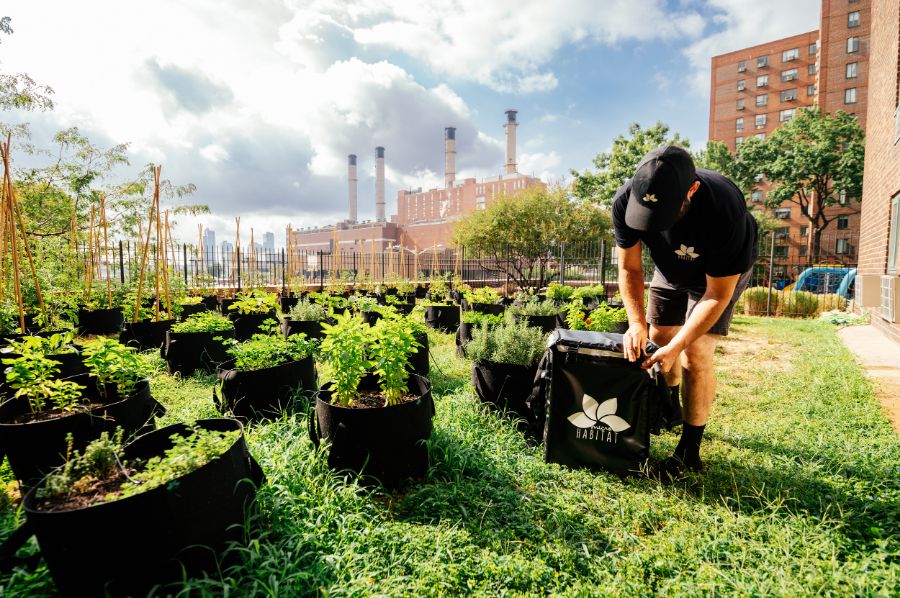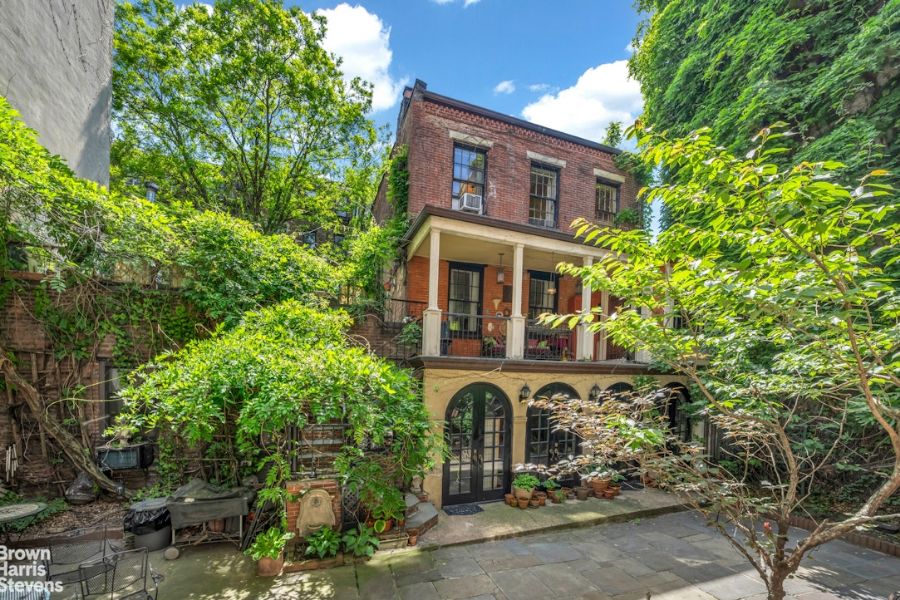This summer, more residential buildings are turning to rooftop farming as a way to create greener, more resilient spaces that actively engage their tenants. MicroHabitat, a company specializing in modular urban farming systems that transform underused rooftops into thriving edible gardens, is at the forefront of this movement. MicroHabitat’s Chief Urban Farmer in NYC, Cameron, shares insights on what it takes to design a tenant-friendly rooftop garden—from the plants tenants love most to the importance of community connection and sustainable design.
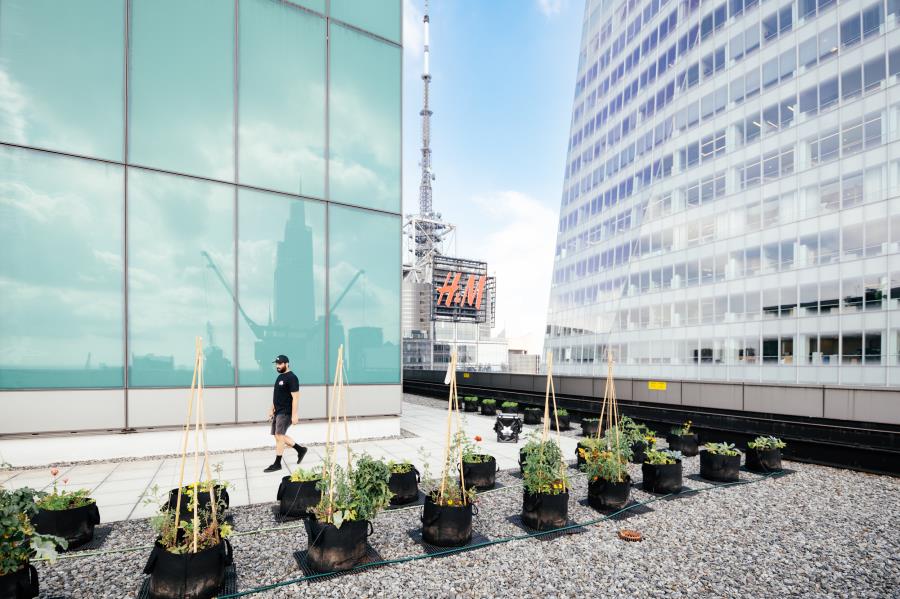
With modular systems that can be adapted to a range of rooftop environments, MicroHabitat ensures gardens are both practical for building teams and meaningful for residents. These spaces don’t just provide food—they foster well-being, connection, and a deeper sense of place.
When it comes to plant selection, one crop stands out above the rest: tomatoes. “Home-grown tomatoes taste drastically different than store-bought,” says Cameron. “You can't beat a sweet and juicy tomato straight off the vine.”
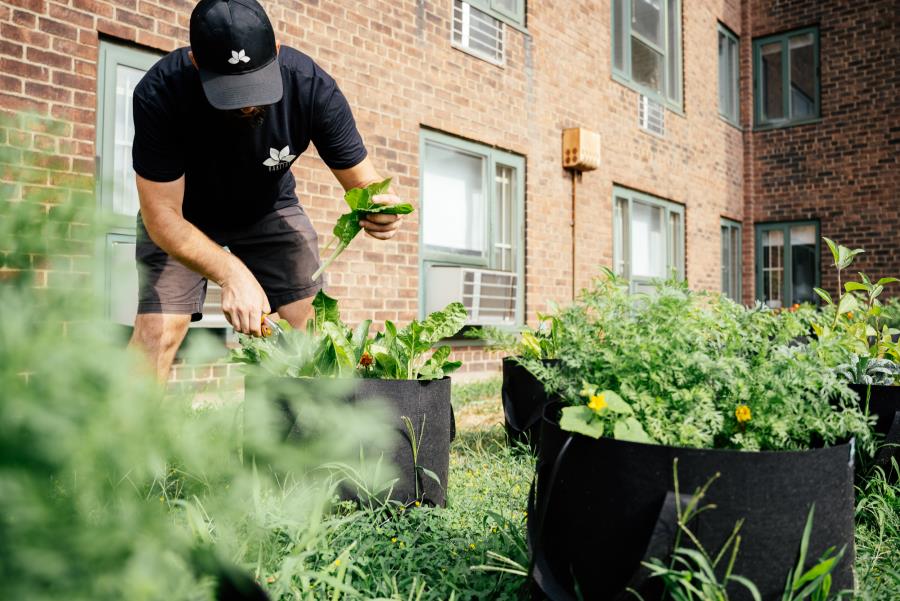
Their vibrant flavor and immediate payoff make them a favorite in residential rooftop gardens, especially among tenants who enjoy harvesting fresh produce themselves. Other crowd-pleasers include herbs, leafy greens, and colorful root vegetables, all chosen for their ease of care and high yield in small spaces. Designing a successful rooftop garden starts with thoughtful collaboration between urban farmers and building teams.
Cameron explains that balancing tenant accessibility with optimal growing conditions is key. “Of course, you want the garden in a space that tenants can enjoy daily—but if the plants aren’t getting enough sun or water, there won’t be much to enjoy.”
MicroHabitat’s modular systems allow for flexible placement across a rooftop while ensuring that environmental conditions support healthy growth. A well-placed garden becomes a living amenity—visually appealing and functionally productive.
Tenant engagement is where rooftop gardens come to life. At Stuytown, MicroHabitat’s largest NYC installation, garden tours have proven especially successful.
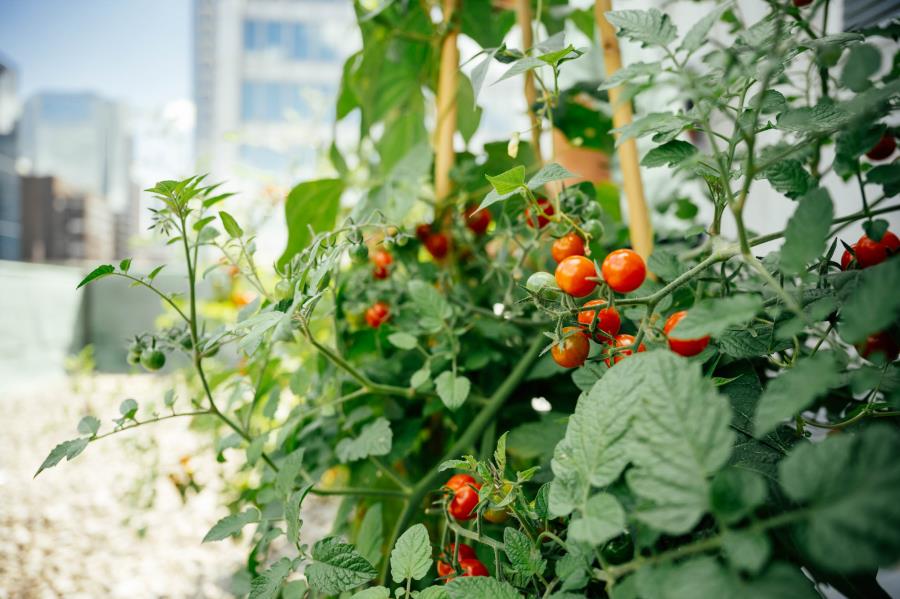
“The sights, smells, and tastes of the garden are hard to replicate elsewhere,” Cameron notes.
Weekly gardening sessions with Stuytown’s “Sociability Group,” a community of young adults with special needs, have created lasting connections and fostered a sense of ownership and pride in the space. “It’s always a highlight of my week,” he adds.
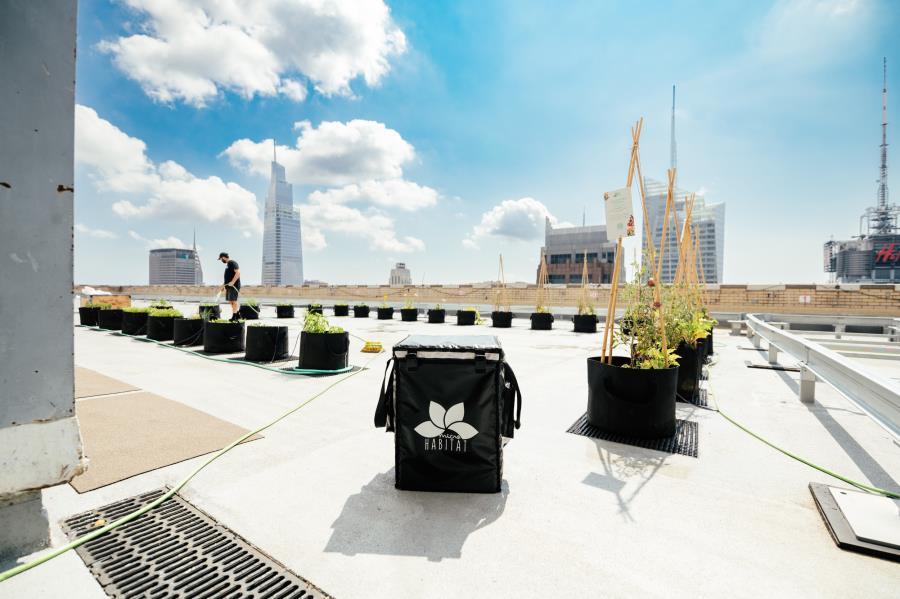
Beyond the personal and communal benefits, rooftop farming offers significant environmental advantages. These gardens help reduce rooftop temperature fluctuations, mitigate stormwater runoff, support biodiversity, and even sequester carbon—contributing to broader urban sustainability goals recognized by standards like Fitwel, WELL, and LEED. When done right, tenant-centric rooftop gardens aren’t just green amenities; they’re essential pieces of a healthier, more connected cityscape.
